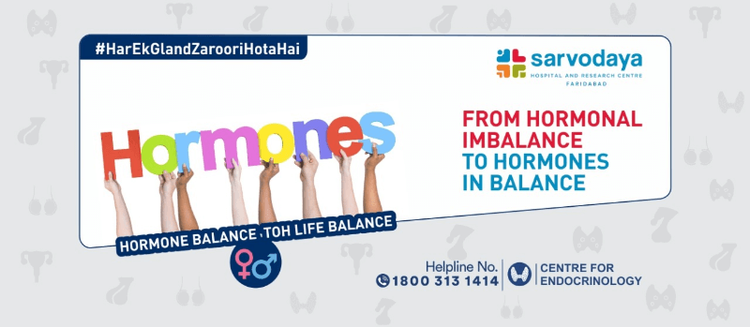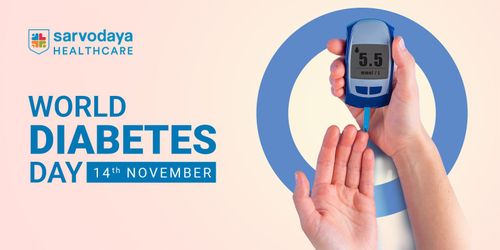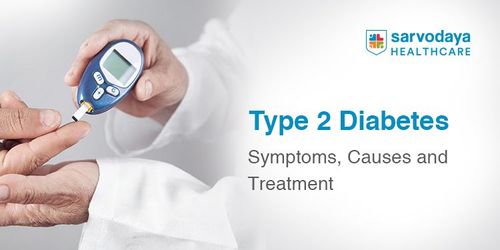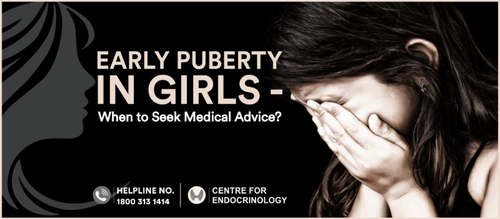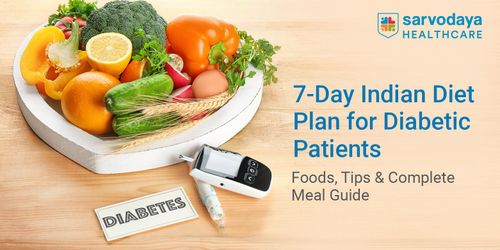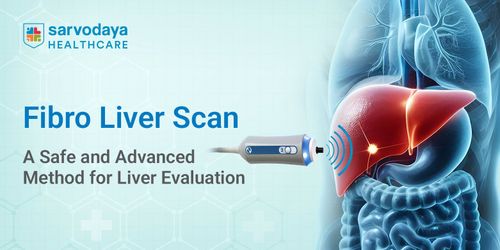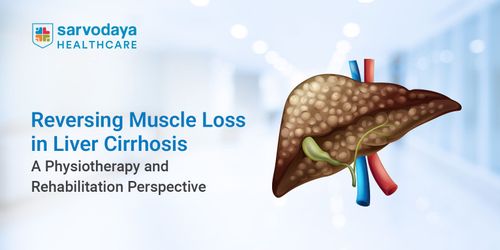With balanced hormones, life is great. The issue arises when blood has too much or too little of a certain hormone, due to which body experiences a Hormonal Imbalance.
Hormones are incredible – Tiny molecules floating in the bloodstream and directing some huge functions of body – Reproduction, Growth, and Development. Hormones are chemical messengers that send signals to the brain, heart, bones, muscles, and reproductive organs and control their activities. They’re absolutely essential to the functioning of every cell in the body. Hormones are produced by glands of the endocrine system. Some of the common hormones are:
- T3, T4, TSH from Thyroid Gland - Controls metabolism, regulate weight, determine energy levels, internal body temperature, skin, hair, etc.
- Insulin from Pancreas - Regulate blood sugar level.
- Estrogen & Progesterone from Ovaries - Responsible for reproduction, menstruation, and menopause in women.
- Prolactin from Pituitary Gland - Initiate lactation in new mothers.
- Testosterone from Testes - Promotes secondary sexual characteristics in men like increasing mass of muscle and bones, growth of body, hair etc.
- Serotonin from Pineal Gland in Brain - Regulate mood or stress level.
- Cortisol from Adrenal Gland - Control physical and psychological stress.
Almost half of the population is suffering from adverse effects of Hormonal Imbalance. It commonly occurs during puberty, menstruation, and pregnancy, but some people experience continual irregular hormonal imbalances. The most common symptoms include unexplained changes in weight, excessive sweating, sleep difficulty, dry skin or skin rashes, changes in blood pressure, blood sugar and heart rate, weakened bones, irritability and anxiety, unexplained fatigue, increased thirst, experiencing depression, headaches, frequent urination, bloating, changes in appetite, reduced sex drive, thinning of hair, puffy face, blurred vision, breast tenderness, and changes in quality of voice.
Here are a few ways to shift your body from hormonal imbalance to hormones in balance :
- Eat right - Have a diet rich in protein, fiber and cut back on carbs and extra sugar. Include healthy fats in your diet, which boost hormone production. Excessive consumption of caffeine and dairy can lead to hormonal imbalance. At the same time, green tea has been found to lower the levels of hormones like ghrelin, insulin and manage cortisol levels in the body.
- Avoid overeating & undereating - Inefficient weight management and poor dietary habits also result in hormonal shifts. Eating too much or too little can lead to a rise in insulin levels, cortisol production and take a toll on your metabolism.
- Exercise regularly - Exercising not just keeps you fit but also actively works in ensuring the right hormonal balance. Engaging in regular physical activity boosts the production of anti-inflammatory hormones and also increases insulin sensitivity.
- Managing stress - Meditation, yoga, aromatherapy need to be brought into use to promote hormonal balance.
- Get better sleep - Uneven sleep patterns can also do potential damage to your hormones. When you snooze, the body fights off toxins and recharges the body with important hormones. Hence, not getting proper sleep brings health risks.
- Herbs - Make use of certain herbs like ashwagandha, holy basil, turmeric, licorice, ginseng, and Goji berry promote hormonal balance and reduce chances of degeneration.
Many hormonal imbalances are caused by stress or hormone medications. However, hormonal imbalances can also be an indicator of any medical condition that impacts or involves the endocrine system or glands. A person should speak to a doctor if they experience long-term unexplained symptoms, especially those that cause pain, discomfort, or interfere with everyday activities.
At Sarvodaya Hospital, we have a specialized centre for Diabetes & Endocrinology with a team of healthcare professionals, expert in managing hormonal imbalances.
Our Specialists Also Available Here
Endocrinologist in Noida
Endocrinologist in Faridabad
Endocrinologist in Delhi NCR
Endocrinologist in Greater Noida


